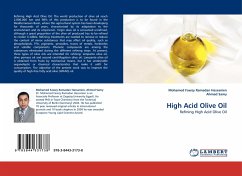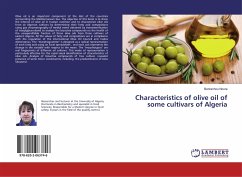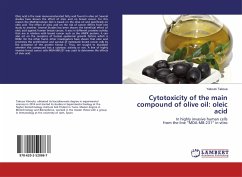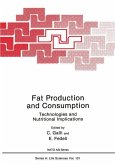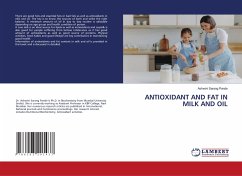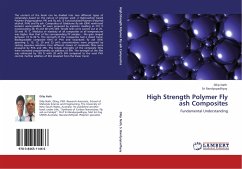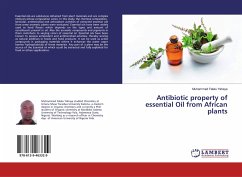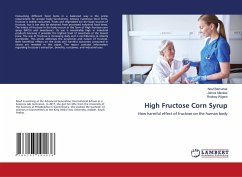Refining High Acid Olive Oil. The world production of olive oil reach 2,800,000 ton and 98% of this production is to be found in the Mediterranean Basin, where this agricultural system has been developing for thousands of years, characterized by its adaptation to the environment and its empiricism. Virgin olive oil is consumed unrefined, although a great proportion of the olive oil produced has to be refined to render it edible. Refining treatments are needed to remove or reduce the content of minor substances that may affect oil quality, such as phospholipids, FFA, pigments, peroxides, traces of metals, herbicides and volatile components. Phenolic compounds are among the substances eliminated during the different refining steps. At present, three types of olive oils are intended for refining: lampante olive oil, olive pomace oil and second centrifugation olive oil. Lampante olive oil is obtained from fruits by mechanical means, but it has undesirable organoleptic or chemical characteristics that make it unfit for consumption. The objective of the present work was to improve the quality of high-free fatty acid olive (HFFAO) oil.

